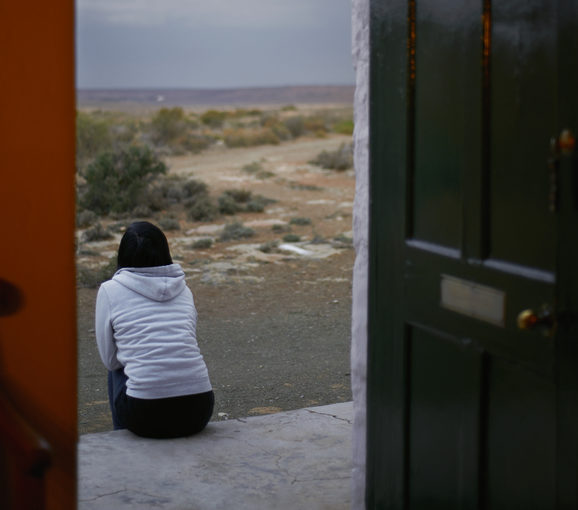Domestic Violence
Domestic violence refers to problematic patterns of abusive behaviors, including battery, physical abuse, and sexual assault, that one intimate partner deliberately perpetrates against another. Domestic violence in close relationships can occur in the form of physical violence, psychological violence, emotional abuse, and sexual abuse.
This problem can impact people of different genders, races, religions, economic statuses, nationalities, and sexual orientations. Domestic violence can cause adverse physical health effects and mental health problems for those who experience and witness it.
Victims of domestic violence and trusted family members and friends should prioritize safety the best way they can. Utilizing healthcare to consult professionals such as primary care physicians, social workers, and mental health care providers can maximize safety and support for someone at risk and in immediate danger.
Primary care physicians can look after victims’ bodily health following acts of physical violence, and social workers can help someone obtain safe housing away from an abusive partner.
Whether they offer in-person or online therapy, a therapist can help victims of domestic violence plan safe ways to leave abusive partners. Attending in-person or online therapy sessions can help people heal from mental health problems, such as symptoms related to post-traumatic stress disorder, depression, anxiety disorders, and other psychiatric conditions.

Forms of Domestic Violence
Children, adolescent young people, and adults of all ages can suffer various types of abuse in intimate relationships and situations of family violence. The types of domestic abuse include:
- Physical abuse: Acts of physical violence such as slapping, hitting, throwing objects, holding another person down, and pushing can characterize abusive relationships.
- Sexual abuse: Pressuring and forcing someone to have sex, and hurting them during sex are examples of sexual assault and sexual abuse.
- Emotional abuse: Abusive partners tend to be controlling, exhibit accusatory behavior, and isolate people from their family and friends.
- Verbal abuse: Someone who faces verbal intimidation or spoken threats of violence may be a victim of abuse.
Domestic Violence Prevalence
The World Health Organization reveals that 30 percent of women worldwide experienced physical intimate partner violence or sexual abuse. Such abuse contributes significantly to women’s physical health and mental health problems. Statistics indicate that women subjected to domestic abuse are more than twice as likely to experience depression than women who aren’t.
In 2010, many women and men in the United States reported in The CDC National Intimate Partner and Sexual Violence Survey that they suffered sexual abuse and physical abuse, or experienced a partner stalk them. Roughly 30 percent of the women and ten percent of the men who were victims of such abuse in intimate relationships reported some of the adverse effects listed below:
- Being afraid
- Fearing for their safety
- Experiencing post-traumatic stress disorder symptoms
- Injuries
- Contacting a crisis hotline
- Needing safe housing, victim advocacy, and legal services
- Staying home from work or school at least once
A special note — Transgender and non-binary folx experience greater levels of intimate partner violence than cisgender men and women who are heterosexual or sexual minorities with rates as high as 2.5 times as high as their gay and lesbian counterparts.
Research shows that more than six percent of children receive exposure to intimate partner violence. Roughly 26 percent of children witness forms of domestic and family violence, which can be risk factors for experiencing mental health problems.
Mental Health and Domestic Violence
Data from NAMI, the National Alliance on Mental Illness, reveal that mental illness impacts 20 percent of adults in the United States each year. Four percent of adults experience severe mental illness each year.
Experiencing and surviving domestic violence puts women and men at an increased risk of having a mental health crisis. Women and men may have various reactions to the stressful and dangerous situations that typically characterize domestic violence. Mental health challenges associated with abuse include:
- Anger
- Anxiety disorders
- Depression disorders
- Disturbed eating and sleeping
- Feelings of guilt and shame
- Low self-esteem
- Post-traumatic stress disorder and other trauma reactions
- Relationship struggles
- Social withdrawal
- Stress
- Substance abuse

Find a Therapist for Domestic Violence
Get personalized matchesActions to Take if You are a Domestic Violence Survivor
It’s crucial for women and men subjected to abuse to always keep in mind that they aren’t alone, and domestic violence isn’t their fault. People who remain in abusive situations or leave them and begin healing have options that allow them to look after themselves.
Call Helplines:
- The COVID-19 pandemic sweeping the United States and other nations prompted stay-at-home orders that could put domestic violence victims at an increased risk of harm, as many abused partners share spaces with their abusers and can’t leave. People in emergencies who need immediate support should place phone calls to the National Suicide Prevention Lifeline at 1-800-273-8255.
- Phone calls to the National Domestic Violence Hotline at 1-800-799-7233 can be beneficial for those experiencing physical abuse and emotional abuse in their relationships. The National Sexual Assault Hotline, 1-800-656-4673, is available for anyone suffering from sexual abuse.
- People should make phone calls to the Childhelp National Child Abuse Hotline at 1-800-422-4453 if they think a child or adolescent is in danger.
Legal Advice:
- Many people often worry about child custody and the financial repercussions of leaving an abusive relationship. Those experiencing intimate partner violence should seek legal information and advice from law professionals in their area and state.
Therapy:
- Suffering from domestic violence and various types of abuse can cause survivors to struggle with symptoms of depression, trauma, anxiety disorders, and substance abuse. Attending in-person or online therapy can help those experiencing and recovering from abuse deal with their experiences and learn new ways to cope.
Take Care of Yourself:
- Adhering best you can to a healthy, well-balanced diet, exercising regularly, and getting enough sleep and rest are ways to care for and rejuvenate oneself. Engaging in hobbies and joining safe clubs and meeting new people can be helpful when trying to deal with and move on from abuse.
Be Open with Family and Friends:
- Family and friends can be essential sources of support and strength. For those feeling withdrawn and isolated by domestic violence, contacting phone helplines or reaching out to support groups can be beneficial.
Support Groups:
- Being in a support group can help survivors know they aren’t alone and learn from and encourage people with similar experiences.
Walking Away From Domestic Violence
When leaving abusive relationships and dangerous environments, survivors should consider the following:
- Create a safety plan: Leaving an abusive relationship can be one of the most dangerous times in an abusive relationship. A practical safety plan can help a person stay as safe as possible during and after an abusive relationship. Consulting a therapist in person or via online therapy sessions can be helpful, as they can use their expertise and skill to assist in safety plan development.
- Identify a safe place: Those experiencing abuse should identify and plan to move to a safe environment with family, friends, or other trusted individuals. People who must utilize a local shelter can use the Internet to locate one.
- Police: People should call 911 and get help from the police as necessary when they’re in abusive relationships and when they’re leaving.
- Get medical attention: It’s critical for domestic abuse victims to visit a doctor for physical health assessments and treatment.
- Cut ties: An essential component to leaving an abusive relationship is to cease all contact and cut off all possible methods of communicating with the perpetrator.
Types of Therapy to Consider
Various therapy types are available to people who experience domestic abuse. Conventional therapies include:
- Cognitive Behavioral Therapy (CBT)
- Eye Movement Desensitisation and Reprocessing therapy (EMDR)
- Interpersonal Psychotherapy
- Psychodynamic Psychotherapy
How to Find the Right Therapist
A person’s circumstances, physical health and mental health status, symptoms, finances, and location can impact how well a therapist will suit them and the type of therapy they need. Women and men should make the considerations listed below when searching for a mental health professional:
Personal Fit
People should be comfortable with their therapists, especially since in-person and online therapy sessions require clients to provide therapists with confidential information at their discretion. Patient-professional relationships can impact therapy outcomes, so it’s essential for people, especially those who experience domestic violence, to find therapists they can trust.
Experience and Qualifications
Seek mental health professionals with current licenses. Carefully vetted therapists accessible through WithTherapy received the required education and training to practice.
It’s in the best interest of people who suffered abuse to find a therapist with a specialization in working with individuals affected by domestic violence, trauma, and related practice areas.
Speak to Prospective Therapists
Having preliminary conversations with therapists is the best way to determine how you feel about them and how well they will fit your needs.
Talking to therapists in advance gives people the chance to ask questions concerning:
- Their qualifications
- Their experience with clients who experienced trauma or domestic violence
- The confidentiality of therapy
- Their response and handling of potential situations where they think your safety or a child’s safety is at risk, or identify risk factors for danger
- Current training they’re undergoing related to therapy for domestic abuse
- The types of treatment they suggest especially for mental health problems associated with domestic violence
- The costs of therapy and insurance plans
If you’re feeling unsure, speaking to several therapists before making a decision enables you to explore options and make the best choice for your needs.
Find the Best Domestic Violence Therapist Near You
To increase access to therapists who have experience treating adults and children impacted by domestic violence, people in the United States should turn to WithTherapy. Using this dedicated therapist search platform allows people to identify and contact therapists with expertise in the onset and symptoms of psychiatric disorders and mental illnesses and appropriate forms of therapy.
WithTherapy makes online or in-person therapy sessions possible, allowing people to get the help and support they need while adhering to social distancing rules, lockdowns, and closures across the United States caused by the COVID-19 pandemic.
Client-therapist connections and online therapy sessions facilitated by WithTherapy enable adults and children to get the support, help, and coping tools they need and deserve to overcome physical and mental health effects caused by domestic violence.
Find a Therapist for Domestic Violence




